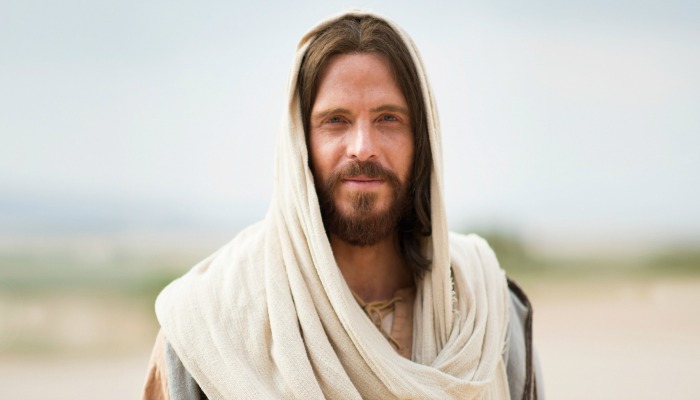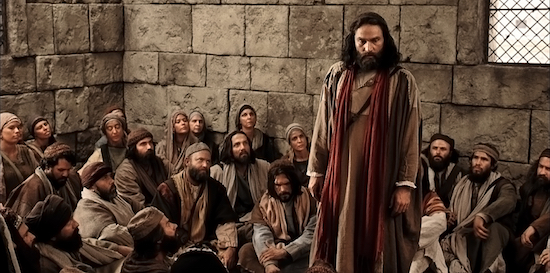
I suppose there’s really no combination of words I could possibly muster to summarize all the incredibly great things Christ did and taught throughout His earthly ministry and beyond. But sometimes looking at the negative space can be instructional as well. Together with all the things Christ did, there were things He did not do or say. Here are five of those things that might be of value to us today.
1. Christ did not choose the cream of the crop to be His apostles
He chose a fistful of fishermen, a tax collector, and several others whose occupations apparently weren’t important enough to write down. Of course, one’s occupation is not necessarily a reflection of who you are as a person, but Christ’s choices sure weren’t what you might expect.
Were they the smartest candidates around? Probably not.
Were they the wisest? Probably not.
Were they the most righteous? Probably not.
Were they the most prepared? Maaaybe.
Were they willing? Yes.
Christ has a habit of choosing normal people to do extraordinary things. Those normal people come with baggage; Weaknesses, sins, concerns, paradigms, and opinions. They’re not all that different from you and I, but like you and I, Christ can empower us to do incredible things.
2. Christ did not let people walk all over Him
Sometimes, we create an ethereal, inhuman Jesus in our minds. He is angelic. He is passive. He turns the other cheek, no matter what. Sometimes we imagine a Jesus who, essentially, lets people walk all over Him.
We may forget that Jesus was shaking things up in His day. He was turning Jewish traditions on their head — in the most holy place, the temple. He claimed to be the long-awaited Messiah. He healed on the Sabbath. He taught “hard sayings” about drinking His blood and eating His flesh. Further, He defended all these actions and teachings whenever He was confronted by people who disagreed with Him.
Yes, the Savior went as a “lamb before the slaughter” so that He could atone for us. But even in this moment of total submission to His Father, He was still not controlled by His oppressors. After Peter “struck a servant of the high priest, and cut off his ear,” Jesus responded not only by healing the servant, but also by teaching Peter a better way.
Christ said:
Thinkest thou that I cannot now pray to my Father, and he shall presently give me more than twelve legions of angels? But how then shall the scriptures be fulfilled, that thus it must be?
Even in the moments that He appeared the most powerless, Christ in reality consciously chose to submit to His Father’s will and gave His oppressors control over Him.
The humility and submission He demonstrated at the end of his life give a striking contrast to the times He did not submit to His enemies.
When Christ cleansed the temple, He was anything but lamb-like. He was sharp. He was on a mission to purify His Father’s house. He was tenaciously insistent.
Elder Talmage in Jesus the Christ states:
“The incident of Christ’s forcible clearing of the temple is a contradiction of the traditional conception of Him as of One so gentle and unassertive in demeanor as to appear unmanly. Gentle He was, and patient under affliction, merciful and long-suffering in dealing with contrite sinners, yet stern and inflexible in the presence of hypocrisy, and unsparing in His denunciation of persistent evil-doers.”
Christ’s attitude during the cleansing of the temple reflects what Christ says in Matthew 10:34:
Think not that I am come to send peace to the earth:
I came not to send peace, but a sword.
Christ was humble and submissive to His Father to the very end of His mortal ministry. But He did not let people walk all over Him.
3. Christ did not teach the Gentiles
“Go ye therefore, and teach all nations…” (Matthew 28:19)
“There is neither Jew nor Greek, there is neither bond nor free, there is neither male nor female: for ye are all one in Christ Jesus” (Galatians 3:28).
God loves all His children and He treats them equally… right? So why did Christ say that He came only to teach “the lost sheep of the house of Israel” or the Jews?
As we learn from studying the scriptures, God has a patriarchal order of giving the birthright to the “firstborn.” The firstborn son was regarded as belonging to God, and the male firstborns of animals also belonged to God and were used for sacrifices.
The firstborns inherited the leadership after the father died and were delegated to bring the word of God and His laws to the rest of His children. Israel received the inheritance of the firstborn and thus when Christ came, He came to instruct the firstborns or “the lost sheep of the house of Israel” so that they might take the word to those around them (Matthew 15:24).
Only after Christ’s death was Peter, then the newest prophet, instructed to take the gospel to the Gentiles (Acts 10-11).

We know then that the church fell into apostasy after all the apostles were killed, and thus in fulfillment of prophecy, in these latter-days where the gospel was restored, the Gentiles were of the first to receive the gospel.
“Then the last shall be first and the first shall be last,” (Matthew 20:16).
God’s timing and way of instruction have order and reason. He chooses when and where things will be done and Jesus Christ “does only that which He seeth the Father do” (John 8:38).
God does love all of His children and He has shown that time and time again throughout history. We may not fully understand Christ’s reason to bringing the gospel first to the Jews and then to the Gentiles, but we can receive this as another manifestation of the Lord’s timing that will be made known in greater detail to us in the last day.
4. Christ did not heal everyone
He only healed those who had faith in Him.
During Christ’s ministry in Palestine, He waited for the sick and afflicted to approach Him in faith before He healed them. Those who lacked faith (and therefore did not seek out Jesus) were not healed.
During Christ’s ministry as reported in The Book of Mormon He does offer to heal everyone, but only after stating, “I see that your faith is sufficient that I should heal you.”
In either scenario, healings were only granted to the faithful who sought out Jesus. Likewise there are surely blessings in store for us, but first we need to ask for them. We need to show our faith.
5. Christ did not come to destroy the law but to fulfill the law
In the words of Christ Himself, “Think not that I am come to destroy the law, or the prophets: I am not come to destroy, but to fulfill” (Matthew 5:17).
Google defines the word “fulfill” as: “to bring to completion or reality; achieve or realize (something desired, promised, or predicted)” or, “to carry out (a task, duty, or role) as required, pledged, or expected.”
Contrast this with the definition for “destroy” and Christ’s statement becomes clearer: “to put an end to the existence of (something) by damaging or attacking it.”
Christ didn’t want to destroy the law or the prophets who taught it. They were valuable and to this day we can learn from them. The Old Testament is full of Symbols of Christ that we can learn from. The Law of Moses has taught me so much about sacrifice and exact obedience. I look up to the Prophets of old as great examples of righteousness and revelation. If Christ had “destroyed” the law, if He had brushed it aside as unimportant or attacked it as “wrong,” we would have lost great examples of faith and holiness.
Christ did not want to damage or attack the Law of Moses. Why would he? He was the Jehovah who instituted it in the first place. However, it was time for the law to come to an end.
Sometimes as humans it’s easy to think that the only things that need to end are bad, broken, or flawed. Why end something that’s going great? What better reason could you have than to replace it with something even better?
That’s what Christ did. He replaced a good law, the Law of Moses, with a better law, a higher law. He wanted us to become more like Him, and to do that, He knew we needed to step it up.
In some ways, it reminds me of the recent changes to Home/Visiting teaching. The “Old Law” was very specific. You could check a box saying whether you did it or not. It could be hard at times, but you knew exactly what you were expected to do, when you were expected to do it with little room for questions.
When President Nelson announced that the Church would no longer have Home/Visiting teaching, he wasn’t condemning it as a bad practice. He was simply ending, or fulfilling it to make room for a better program. Like the higher law that Christ instituted, Ministering is more focused on the spirit than the letter, more focused on personal righteousness than on to-do lists. It’s another prompting from Christ, urging us to step it up, become more like Him, and hasten the work.
In understanding that Christ did not come to destroy the law, but to fulfill it, building upon the still-true principles of the past, we understand that He is building us to be better people by using things we have already learned to be true.





